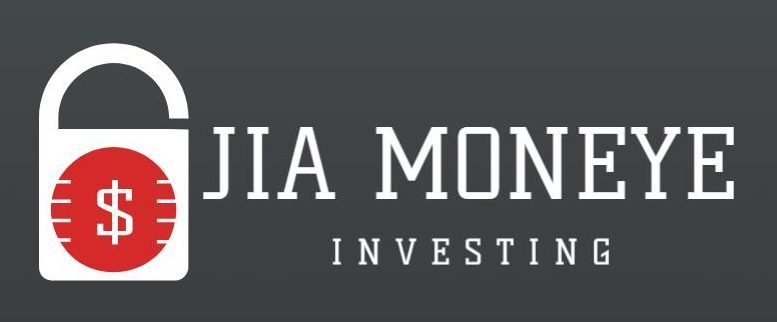
Debt Settlement vs. Debt Consolidation: What’s Best for You?
Understanding Debt Settlement and Debt Consolidation: Which is Best for Your Financial Situation?
When it comes to managing overwhelming debt, two popular strategies often come to the forefront: debt settlement and debt consolidation. Both methods offer potential solutions to financial distress, but they function differently and carry their own set of advantages and disadvantages. Understanding these differences is crucial in determining which strategy is best suited to your financial situation.
Debt settlement is a process where you or a company acting on your behalf negotiates with your creditors to reduce the amount you owe. This method can potentially reduce your debt significantly, but it’s not without its drawbacks. Firstly, debt settlement can negatively impact your credit score, as it often involves stopping payments to your creditors while negotiations take place. This can lead to late fees and penalties, further increasing your debt. Secondly, not all creditors are willing to negotiate, and there’s no guarantee of success. Lastly, if a debt settlement company is involved, they will typically charge a fee, which can be substantial.
On the other hand, debt consolidation involves taking out a new loan to pay off your existing debts. This strategy simplifies your debt management by combining multiple payments into one monthly payment, often with a lower interest rate. This can make your debt more manageable and potentially save you money in the long run. However, debt consolidation also has its pitfalls. It requires a good credit score to secure a loan with favorable terms. Additionally, it’s worth noting that while debt consolidation simplifies your payments, it doesn’t reduce the amount you owe. If you’re not careful with your spending habits, you could end up incurring more debt.
So, which strategy is best for your financial situation? The answer largely depends on your individual circumstances. If you have a good credit score and your debt is manageable but scattered across multiple accounts, debt consolidation might be a good option. It can simplify your payments and potentially reduce the amount of interest you pay over time. However, if your debt is substantial and you’re struggling to make minimum payments, debt settlement might be a more viable option. It could potentially reduce the amount you owe, making your debt more manageable.
However, it’s important to consider the potential impact on your credit score. Debt settlement can significantly damage your credit, making it harder to secure loans in the future. On the other hand, if managed correctly, debt consolidation can actually improve your credit score over time.
Before making a decision, it’s advisable to seek advice from a financial advisor or a credit counselor. They can help you understand your options and guide you towards the best solution for your situation. It’s also important to remember that both debt settlement and debt consolidation are tools to help manage debt, not magic solutions. They should be used as part of a broader plan to improve your financial health, which includes budgeting, saving, and making wise financial decisions.
In conclusion, both debt settlement and debt consolidation offer potential solutions to managing debt. The best strategy for you depends on your individual circumstances, including the amount of debt you have, your ability to make payments, and your credit score. By understanding the advantages and disadvantages of each method, you can make an informed decision that best suits your financial situation.
Choosing Between Debt Settlement and Debt Consolidation: A Comprehensive Guide
When faced with mounting debt, it can be overwhelming to decide on the best course of action. Two popular strategies for managing debt are debt settlement and debt consolidation. Both have their advantages and disadvantages, and the best choice depends on your individual circumstances. This article will provide a comprehensive guide to help you make an informed decision.
Debt settlement involves negotiating with your creditors to pay less than what you owe. This is typically done through a debt settlement company, which will negotiate on your behalf. If successful, you could end up paying significantly less than your original debt. However, this process can take several years and there’s no guarantee that your creditors will agree to a settlement. Additionally, debt settlement can have a negative impact on your credit score, as it often involves stopping payments to your creditors while negotiations are ongoing. This can lead to late fees and penalties, further increasing your debt.
On the other hand, debt consolidation involves taking out a new loan to pay off your existing debts. This can simplify your finances by combining multiple payments into one monthly payment. The new loan typically has a lower interest rate than your existing debts, which can save you money in the long run. However, debt consolidation requires a good credit score to get a favorable interest rate. If your credit score is low, you may not qualify for a consolidation loan, or the interest rate may be too high to make consolidation worthwhile.
When choosing between debt settlement and debt consolidation, it’s important to consider your financial situation and goals. If you’re struggling to make minimum payments on your debts and your credit score is already low, debt settlement may be a viable option. However, keep in mind that this can further damage your credit score and may not eliminate all of your debt.
If you have a good credit score and are able to make regular payments, debt consolidation may be a better choice. This can simplify your finances and potentially lower your interest rate, saving you money over time. However, it’s important to remember that debt consolidation is not a quick fix. You’ll still need to make regular payments on your new loan, and if you’re not careful, you could end up in more debt.
Before making a decision, it’s advisable to seek advice from a financial advisor or credit counselor. They can help you understand your options and guide you towards the best solution for your situation. It’s also important to do your own research and understand the potential consequences of each option.
In conclusion, both debt settlement and debt consolidation can be effective strategies for managing debt, but they’re not suitable for everyone. Debt settlement can reduce your debt but can damage your credit score and may not eliminate all of your debt. Debt consolidation can simplify your payments and potentially lower your interest rate, but requires a good credit score and disciplined budgeting. By carefully considering your financial situation and seeking professional advice, you can choose the best strategy for managing your debt.
Debt Settlement vs. Debt Consolidation: Making the Right Choice for Your Financial Health
When it comes to managing overwhelming debt, individuals often find themselves at a crossroads, trying to decide between debt settlement and debt consolidation. Both options offer a pathway to financial recovery, but they function differently and come with their own set of advantages and disadvantages. Understanding these differences is crucial in making the right choice for your financial health.
Debt settlement is a process where you or a company negotiates with your creditors to reduce the amount you owe. This option can be attractive because it offers the possibility of paying less than what you originally owed. However, it’s important to note that debt settlement can negatively impact your credit score. This is because the process often involves stopping payments to your creditors, which can lead to late fees and a drop in your credit score. Additionally, there’s no guarantee that your creditors will agree to a settlement, and if they do, the IRS may consider the forgiven debt as taxable income.
On the other hand, debt consolidation involves taking out a new loan to pay off your existing debts. This can simplify your financial life by combining multiple payments into one, often with a lower interest rate. This method can be beneficial if you have high-interest debts, like credit card debt, and can secure a consolidation loan with a significantly lower interest rate. However, debt consolidation requires a good credit score to get favorable loan terms. It’s also worth noting that while debt consolidation can make your debts more manageable, it doesn’t reduce the amount you owe.
So, how do you decide between debt settlement and debt consolidation? The answer largely depends on your individual circumstances. If your debts are so overwhelming that you can’t see a way to pay them off, even with reduced interest rates, debt settlement might be your best option. However, you should be prepared for the potential impact on your credit score and the possibility of having to pay taxes on the forgiven amount.
Conversely, if you’re struggling with high-interest debts but can afford to make regular payments, debt consolidation could be a better choice. This option can help you save on interest and pay off your debts faster. However, it’s important to remember that you’ll still owe the same amount, just at a lower interest rate. Therefore, you’ll need to be disciplined about making your payments and not accumulating new debt.
In conclusion, both debt settlement and debt consolidation can be effective tools for managing debt, but they’re not one-size-fits-all solutions. It’s important to carefully consider your financial situation, your ability to make payments, and the potential impact on your credit score before deciding which option is right for you. Consulting with a financial advisor or a credit counselor can also be helpful in making this important decision. Remember, the goal is not just to get out of debt, but to do so in a way that sets you up for long-term financial health.


